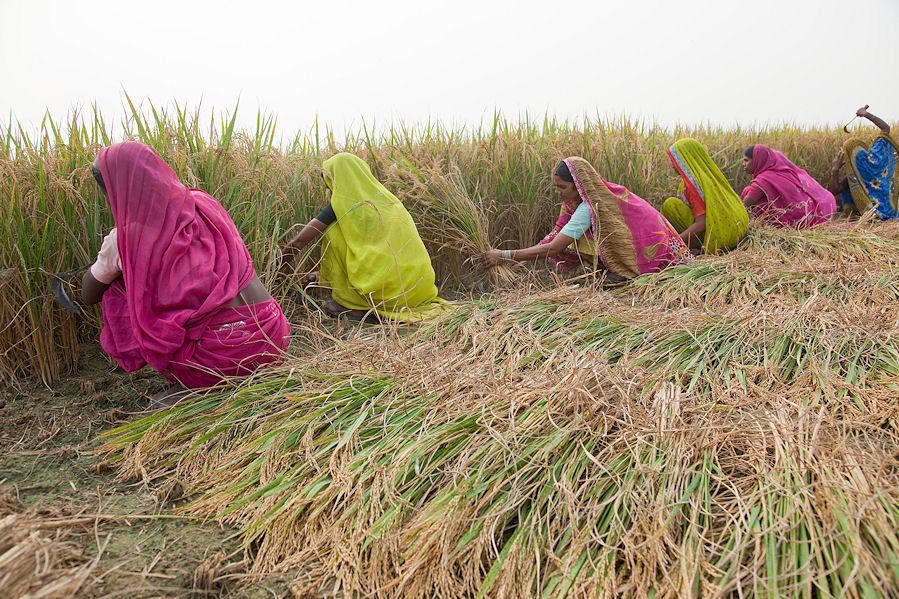Olivier De Schutter, the UN Special Rapporteur on the Right to Food, called last week for MEPs to take into account the impact on developing countries when voting on amendments to the draft CAP regulations post-2013 (see also here). Among other issues, he called on MEPs to support the views of the European Parliament’s Development Committee, which voted unanimously in favour of a mechanism to monitor the CAP’s development impacts (look for Amendment 4 inserting a new Article 110(a)). In the voting last week, COMAGRI MEPs declined to do this.
De Schutter had previously issued a report with some controversial recommendations on how this round of CAP reform could help to realise the right to food in developing countries.… Read the rest
Who is happy with EP COMAGRI’s recent vote?
After more than a year of debate, the EP Agriculture and Rural Development Committee began adopting several amendments to the future CAP legislation on 23 and 24 January but approval remains far from certain.
Many criticisms have been made since the vote. The agro-lobby is talking about a melt-down of the urgently needed reforms and greening, reacting on the COMAGRI proposal to allow farmers to ‘opt out’ of mandatory greening requirements and still get at least 70% of the direct payments as well as watering down every single measure with so called ‘equivalents’.
Environmental campaigners also criticised the vote, alleging that the debate was dominated by agricultural interests.… Read the rest
Following the negotiations on the Direct Payments Regulation
COMAGRI will vote on compromise amendments to the Commission’s proposals for the four main CAP regulations this week. To understand the dynamics of the legislative process, it is helpful to be able to see the positions of the main institutions side-by-side. I have constructed a four-column spreadsheet table showing, article by article, the positions of the main actors as we know them to date for the direct payments regulation (download the file to your computer by clicking File, Download in the upper left of the Google Drive document when the link opens). The four columns show, for each article:
-
The Commission’s proposal October 2011
The COMAGRI rapporteur’s amendments May 2012
The Council’s position as summarised in the Cyprus Presidency document December 2012
The COMAGRI compromise amendments Jan 2013
I have only had the time to construct this table for the direct payments regulation so far.… Read the rest
The significance of Rule 70 for CAP reform negotiations
To understand the possible timing of the CAP reform negotiations it is crucial to understand the new decision-making process under the Lisbon Treaty involving both the Parliament and the Council. In a recent post, I set out my understanding of the process, based on the assumption shared by most commentators (for example, see this Brussels briefing) that the Parliament would vote in plenary on its position on CAP reform in March, thus making a first reading agreement impossible.
I now think another scenario is more likely, namely, that COMAGRI will appoint its formal trilogue negotiating team at its next meeting in a week’s time based on the mandate arising from the voting on the compromise amendments.… Read the rest
Forum on CAP reform
I did not get time before Christmas to draw attention to the Forum on the Common Agricultural Policy after 2013, a series of articles on the CAP reform process published in the Nov/Dec issue of Intereconomics. This is a review of European economic policy published jointly by the Centre for European Policy Studies and the Leibniz Information Centre for Economics. I contributed one of the articles, and the contributions of my colleagues are uniformly excellent even if they take different views on some of the main issues.
The full list of contents is as follows:
Jean-Christophe Bureau Where is the Common Agricultural Policy heading?… Read the rest
Welcome to the Irish Presidency
Ireland took over the EU Presidency from 1 January 2013 and the Irish Minister for Agriculture, Food and the Marine, Simon Coveney, will chair the Council of Agricultural Ministers for the next six months. Coveney is an energetic Minister and the Irish have an experienced bunch of officials (see who’s who in the Irish delegation) who will do everything to ensure an agreement on CAP reform on their watch.
Securing an agreement under the Irish Presidency is conceivable. But I am going to argue that the institutional decision-making process between the Council and the Parliament, as well as the linkage with the Multi-annual Frinancial Framework (MFF) negotiations, will make it extraordinarily difficult, even assuming that the European Council will reach an agreement on the next MFF at its next meeting on 7-8 February 2013.… Read the rest


